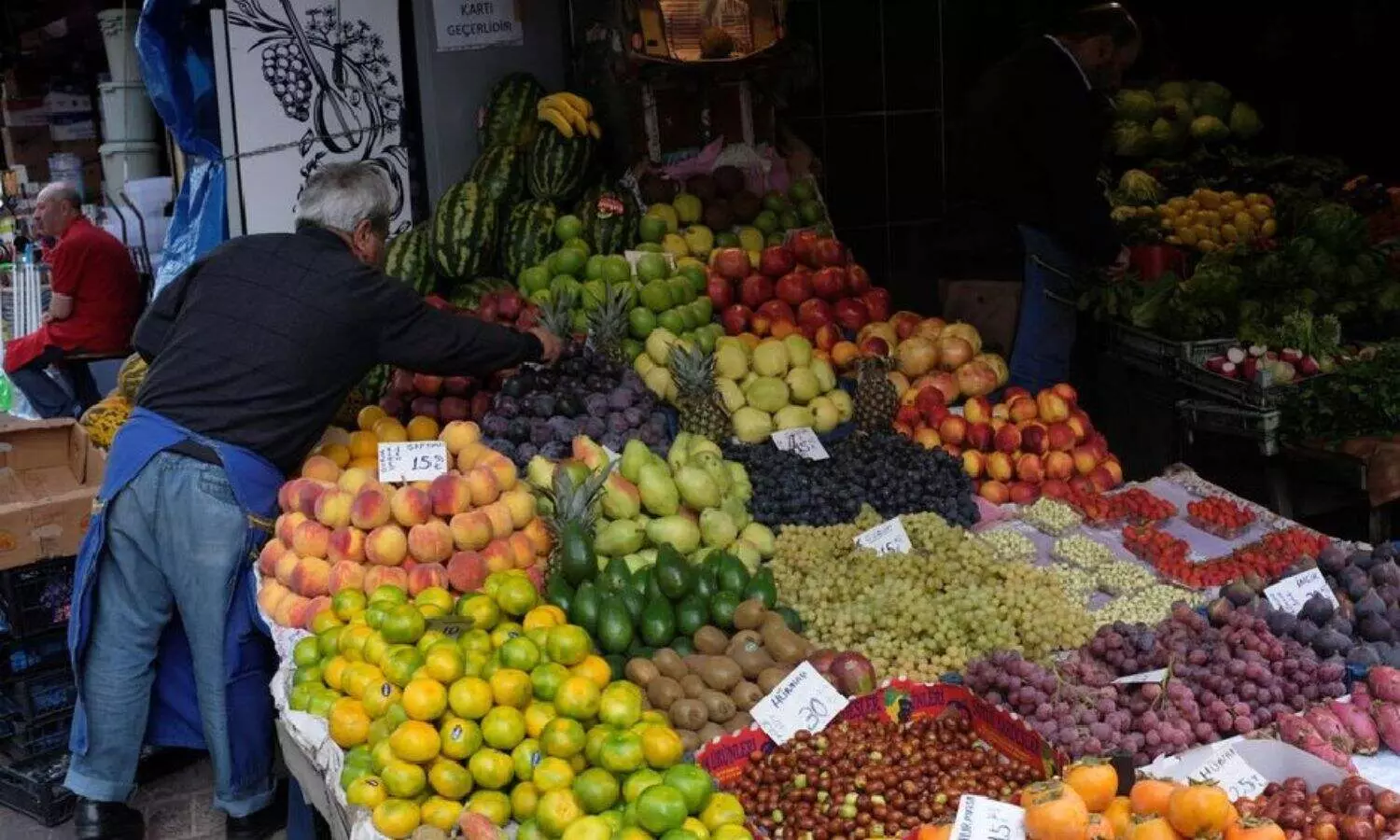
Fruits and vegetables in market
NEW DELHI: Amid the evolving political situation in Bangladesh, an expert at International Fund for Agricultural Development has said that rise in food prices, disruption of local markets and an "increased perception" of risk of return on investment are likely to be a fallout of the crisis.
In an interview to PTI, Jyotsna Puri, Associate Vice President (Strategy and Knowledge Department) at the Rome-based UN agency, also said it is important to recognise that agriculture can be a very "important provider" of income, and therefore of "security and resilience".
What is being witnessed in Bangladesh, the situation there is also inherently linked to issues of jobs and livelihood, she said.
Asked what will be the immediate fall out of the crisis in the agriculture sector in Bangladesh, she said, "Because of that turmoil, we are going to see increase in food prices, there will be disruptions, so local markets will be disrupted, because of impending sense of increased risks on local markets."
"Hopefully not, but there is going to be an impact on perception of risks for, say, foreign direct investment, so, commercial investors who are coming to Bangladesh or other countries," Puri told PTI at the UN House here Tuesday evening.
There is going to be an "increased perception of risk of return", and those are the things that need to be guarded against, and really reassure external investors that their investments are safe and there will be repayment, she said.
Underlining the link of agriculture and food security and stable economy, the IFAD expert asserted that it is important to recognise that agriculture can be a "very important provider of income, and therefore of security and resilience".
"It can also be a very important contributor to increased stability, because we are focusing on formal markets and formal jobs in government sectors, which exactly what acted as a spark to a large part of the instability that we are witnessing today," she added.
Puri suggested that if the opportunity within the agriculture sector could have been increased, and the sector that has become important in Bangladesh, it could also absorb and also give a lot of new jobs and opportunities to enterprises.
She lamented that the rural areas and the farming sector so far, in general has been thought of as "subservient to interests of urban structures and formal sectors".
"If our investments are ensuring that our rural areas are becoming connected, resilient and equitable and prosperous, we are going to see a rural transformation, which is providing opportunities for growths and jobs in rural areas, then we don't need to see the conflicts that we are seeing today," she said.
Puri, among other field experts, attended the 32nd International Conference of Agricultural Economists (ICAE) that was recently inaugurated by Prime Minister Narendra Modi in New Delhi.
In his address during the conference, Modi said there was a time when India's food security was a global concern, but today India is providing solutions for global food and nutrition security.
"I think, it underscores for India and for the rest of the world as to how important the PM and the rest of the government finds agriculture in this phase where we are taking about food security and hunger and malnourishment," she said.
The conference aims to tackle the pressing need for sustainable agriculture in the face of global challenges such as climate change, natural resource degradation, rising production costs and conflicts.
Puri said despite all the self-congratulation for being a developed world that is being witnessing today, "more than 750 million people are encountering and facing hunger".
"Second, more than 2.8 billion people are not able to access nutritious or health food, also means it's really a travesty. Means, we are not doing sufficiently or enough in terms of something as basic as food security and in terms of nutrition security," she said.
On the growth of India as an agriculture-dominated country, in the past few decades, she said, "On the global scale we are witnessing that there has been an increase in hunger, and lack of access to healthy food. But, India is sort of bucking the trend."
"We are seeing that number falling from 16.3 or 16.4 per cent to 13.3 per cent. So, India as a country is able to say that the percentage of people who are facing hunger today is reducing," she added.
Puri also praised the infrastructure development and push on information technology seen in India under the leadership of Prime Minister Modi that has expedited the payments process for farmers and other scheme beneficiaries in a major way.
But, challenge that remains in this space is "small-holders farmers" and most food in India is still produced by small-holders farmers, defined as those cultivation on plots of less than 5 hectares.
"Climate finance does not go to those small-holders farmers. That's a travesty," she rued.
The IFAD official said the conference in Delhi discussed financing solutions that helps to bridge the otherwise "siloed sectors" — food security, health, agriculture production, infrastructure, climate and financing.
On the role of artificial intelligence in the field of agriculture, she said, "AI is helping us put information sources, such as satellite images, data laboriously collected through surveys, with real-time data, photographic data, GIS data, combine all those sources, and to really make a sense of it."
"That is the power of AI. But, there is also a challenge, because when we are taking an AI algorithm, we want to train it on data that gives us the right, representatives solutions and inferences," she added.
With AI, a lot of "biases are in danger of getting snowballed", unless one is very careful. "So, we got to marry gen AI with still primary data collection," Puri suggested.

